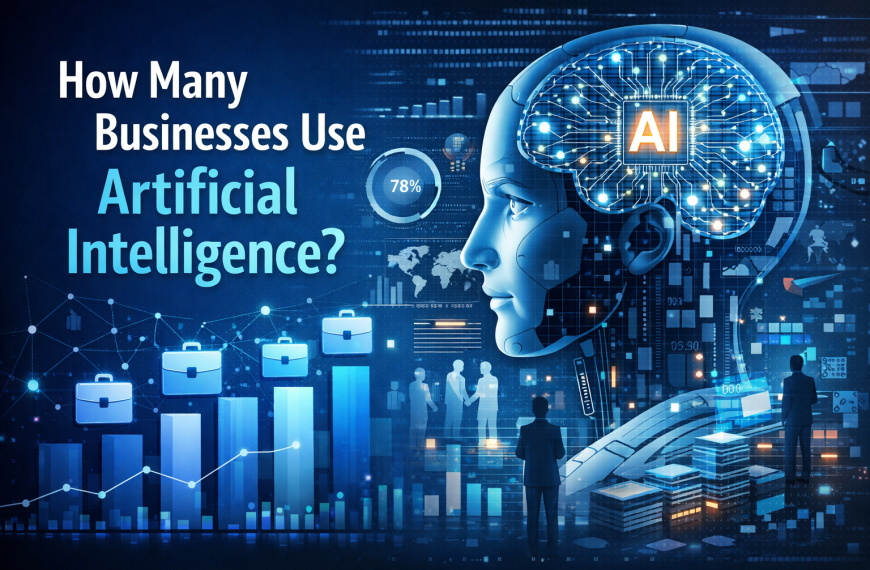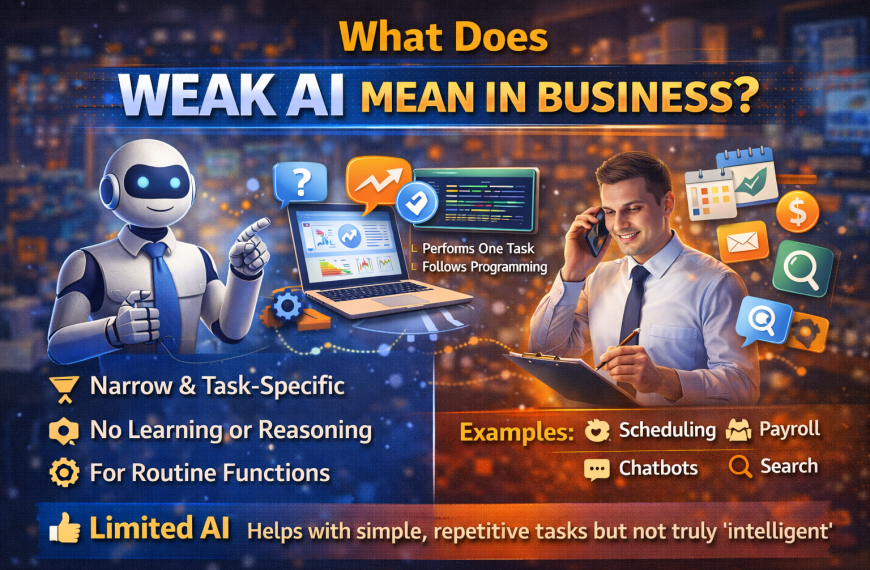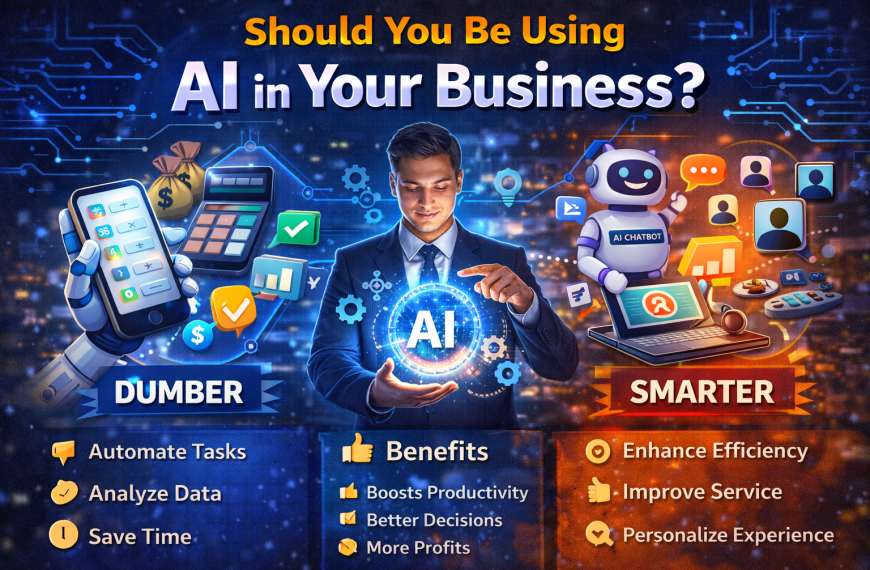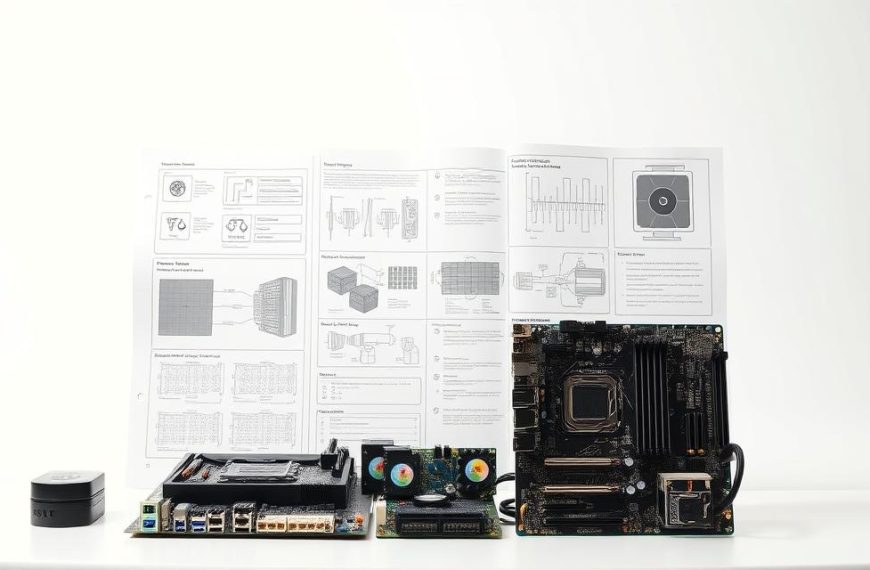Artificial intelligence is reshaping business strategies and driving innovation across global industries. AI adoption has led to new ways of improving efficiency in organisations. This technological shift is creating fresh approaches to how companies operate.
The global AI market is set to grow rapidly in the coming years. Research shows a projected 38.1% annual growth rate from 2022 to 2030. More companies now see AI’s potential to change traditional business models.
AI pioneers like ChatGPT have shown the incredible reach of this technology. In just two months, ChatGPT gained 100 million users. This growth highlights AI’s power to transform modern business landscapes.
Smart AI use allows firms to automate tasks and boost productivity. It also provides valuable insights for better decision-making. Companies can streamline processes and reduce paperwork with these intelligent technologies.
AI is shaping the future of business intelligence. It drives innovation and improves customer experiences. As firms explore machine learning, the possibilities for advancement seem endless.
AI Transformation in Modern Business Operations
Artificial intelligence is reshaping how businesses operate in today’s digital landscape. AI integration and business automation are transforming organisational efficiency. These technologies are no longer futuristic concepts but present-day realities.
Companies are swiftly adopting AI-powered solutions to streamline their operations. AI could potentially add £13 trillion to the global economy by 2030. This figure highlights the transformative potential of these technologies.
Automation and Process Optimisation
AI-driven automation significantly boosts operational efficiency. Key advantages include reduced manual errors and enhanced productivity. It also offers streamlined workflow management and real-time process monitoring.
- Reduced manual errors
- Enhanced productivity
- Streamlined workflow management
- Real-time process monitoring
Cost Reduction and Efficiency Gains
AI technologies enable businesses to achieve substantial cost savings. By automating routine tasks, companies can focus human resources on strategic initiatives. This shift allows for more efficient use of workforce talents.
AI algorithms can forecast demand more accurately, helping businesses maintain optimal stock levels and minimise operational risks.
Integration of AI-Powered Solutions
Successful AI integration requires a strategic approach. Businesses must invest in workforce training and advanced technological infrastructure. They also need continuous learning platforms and adaptive management strategies.
- Workforce training
- Advanced technological infrastructure
- Continuous learning platforms
- Adaptive management strategies
The future of business lies in embracing AI-driven innovations that enhance operational capabilities and drive competitive advantage.
Revolutionary Changes in Customer Experience and Service Delivery
AI is reshaping how businesses interact with customers. It’s bringing in new levels of personalisation and smart service delivery. This transformation is changing the digital landscape profoundly.
AI personalisation is now key to modern customer engagement. Recent research shows some interesting facts about this tech revolution:
- 65% of customer experience leaders view AI as an essential tool for enhancing interactions
- 85% of businesses will interact with customers primarily through AI communication channels by 2024
- 68% of customers appreciate the rapid response times of chatbots
AI-Driven Personalisation Strategies
Predictive analytics helps businesses create tailored experiences that anticipate customer needs. Carvana has shown great success using AI insights. They’ve generated over $10 million in extra business and boosted car reservations by 5%.
Virtual Assistants and Chatbot Evolution
Modern virtual assistants are changing how customer service works. Bank of America’s Erica serves 25 million mobile customers efficiently. These intelligent systems are not just responding to queries but proactively engaging customers.
Predictive Customer Analytics
AI-powered analytics offer deep insights into customer behaviour. Frontier Communications uses advanced conversation analysis to understand buyer intent. This leads to more meaningful and targeted interactions.
The future of customer experience lies in understanding and predicting individual customer needs before they even articulate them.
AI’s Role in Decision-Making and Strategic Planning
AI technologies are swiftly changing business intelligence. AI decision-making has become vital for organisations seeking an edge in complex markets.
Powering Business Intelligence with AI
Firms now use AI to uncover deeper insights from complex data. Machine learning can spot patterns humans might miss in vast information sets.
AI helps with quick data analysis and spotting trends. It also aids in predicting market shifts and managing risks smartly.
- Rapid data analysis and pattern recognition
- Predictive market trend forecasting
- Sophisticated risk management strategies
Strategic Risk Assessment and Management
AI has changed risk management with its strong analysis skills. Business intelligence tools now help firms in new ways.
These tools can find money risks and predict cyber threats. They also help assess tricky market situations.
- Detect potential financial vulnerabilities
- Predict cybersecurity threats
- Evaluate complex market scenarios
AI transforms risk management from reactive to proactive strategies.
Market Trend Analysis and Forecasting
Smart AI systems help companies predict market changes accurately. They look at past data, current markets, and new trends.
From this, they create useful insights for strategy. Most business leaders plan to invest more in AI and machine learning.
This shows how important risk management tech is in today’s business plans. It’s becoming a must-have for staying competitive.
The Economic Impact of AI Implementation
AI is set to revolutionise global business, potentially adding £15.7 trillion to global GDP by 2030. McKinsey predicts that 70% of companies will use AI by 2030, driving massive productivity gains.
McKinsey’s research suggests AI could boost economic output by $13 trillion. Accenture forecasts AI doubling growth rates for twelve major Western economies. Sectors like transport, logistics, and technology could see up to 40% productivity improvements.
AI is projected to add $6.6 trillion from increased productivity and $9.1 trillion from consumption effects. Goldman Sachs reports AI could affect 300 million jobs worldwide, with 25% automation potential.
The OECD believes AI will create new opportunities rather than cause mass unemployment. Organisations must invest in AI skills and embrace innovation to stay competitive.
With AI potentially boosting global GDP growth by 7% annually, businesses must prepare for a future driven by intelligent technologies.
FAQ
How is artificial intelligence transforming business operations?
AI is revolutionising business operations through advanced automation. It streamlines processes, reduces human error, and allows employees to focus on strategic tasks. Companies are seeing major efficiency gains and cost reductions with AI-powered solutions.
What impact does AI have on customer experience?
AI creates tailored customer experiences, boosting satisfaction and loyalty. Advanced virtual assistants and chatbots offer sophisticated 24/7 support. Predictive analytics help businesses anticipate customer needs and preferences more accurately.
Can AI improve business decision-making?
AI processes vast amounts of data to provide actionable insights for strategic planning. It enhances risk assessment and enables advanced market trend analysis. AI augments human decision-making through data-driven intelligence.
What are the economic implications of AI implementation?
AI can drive significant productivity gains across industries. It creates new job opportunities in AI-related fields. However, it also presents challenges like potential job displacement in traditional sectors.
How are businesses integrating AI technologies?
Businesses are using AI in supply chain management and inventory control. They’re also applying it to customer service and predictive analytics. These strategic implementations help companies gain competitive advantages.
What skills are becoming crucial in the AI-driven business landscape?
AI-related skills are increasingly important in today’s business world. Companies are investing in AI education and data analytics. They’re also focusing on machine learning and technological adaptability to stay competitive.
What challenges do businesses face when adopting AI?
Businesses must manage ethical considerations and address potential job displacement. Ensuring data privacy and managing implementation costs are also key challenges. Developing the necessary technological infrastructure and expertise can be difficult.
How is AI changing cybersecurity and risk management?
AI is transforming risk management with advanced fraud detection. It enhances cybersecurity measures and enables real-time threat analysis. This is achieved through sophisticated algorithmic monitoring and predictive capabilities.
















